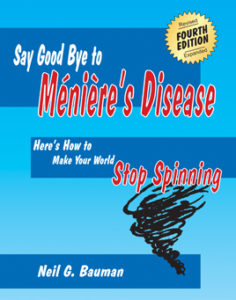by Neil Bauman, Ph.D.
A man wrote:
My doctor is considering giving me low-dose Doxycycline to treat my ocular rosacea. Can you tell me how safe this drug might be for someone with a moderate sensorineural hearing loss?
I was given tetracycline as a child (which badly discolored my permanent teeth) and took it again for a number of years for acne as a teenager. After learning about ototoxic drugs, I’ve wondered if the Tetracycline might have contributed to my hearing loss. Although the Tetracycline drugs are promoted as relatively safe, I do have concerns about using Doxycycline. Is there any information about this drug, in regard to ototoxicity?
Information on the ototoxicity of many drugs is quite sketchy. Drugs in the Tetracycline family are no exception. Here is what I can tell you about them.
The Tetracycline family of antibiotics includes drugs such as Tetracycline, Chlortetracycline, Doxycycline and Minocycline to name some of the more common ones.
Often drugs in the same family have much the same ototoxic properties. Thus, if Tetracycline did indeed damage your ears, you could expect more damage from Doxycycline.
In order to determine whether there might be a connection between your taking Tetracycline and your hearing loss, you need to think back and see whether there is any correlation in time between when you took the Tetracycline and the appearance of your hearing loss. If your hearing loss occurred shortly after you first took the Tetracycline, and got worse after the second bout, then there would seem to be a strong cause and effect relationship. However, if you did not get a hearing loss until many years later, I would doubt that the Tetracycline caused it.
Although Tetracycline and Doxycycline are not listed in the Physicians’ Desk Reference (PDR) as causing hearing loss, Minocycline is. However, we get a different story when looking through the Canadian equivalent–the Compendium of Pharmaceuticals and Specialties (CPS). There we find Tetracycline, but not Doxycycline or Minocycline listed as causing hearing loss.
From that, it would appear that hearing loss is not a big problem with the drugs in the Tetracycline family. As you have already noted, the Tetracycline family is generally not thought to be all that ototoxic–at least to most people. However, there are a number of exceptions. Some people do indeed suffer from hearing loss after taking one of the Tetracyclines. I have had several people contact me in this regard.
For example, one man had a severe ototoxic reaction to Tetracycline that left him with a severe/profound hearing loss in both ears. Another man took Chlortetracycline for a strep throat that left him with a permanent hearing loss. Yet another man took Doxycycline for a urinary tract infection and lost much of his hearing as a result. Still another man took Doxycycline for 10 days to treat his cold. He reported, “the hearing in my already-impaired right ear suddenly reduced to virtually zero and remains there.”
Thus, it is wise for you to be wary, especially since you already have a hearing loss. This is because people with hearing losses are even more susceptible to the ravages of ototoxic drugs than those with normal hearing.
Will the Doxycycline affect your hearing? I don’t think anyone knows for sure. Thus, you are going to have to decide for yourself, based on your earlier history with Tetracycline, whether you want to risk taking the Doxycycline and having to put up with any resulting ototoxic side effects or not. At least you now know what you are dealing with.
If you choose not to risk it, you might want to investigate other drugs that are not known to be ototoxic, or look at other options such as herbal remedies.
For more information on ototoxic drugs in general seach this website for the many articles on various ototoxic drugs.
For complete information and individual listings on the known ototoxic drugs and chemicals, see our book, “Ototoxic Drugs Exposed.”


